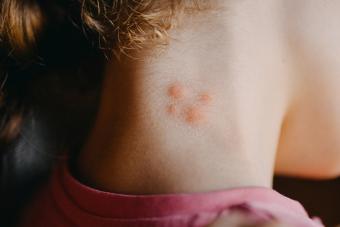
A cuticle infection, also known as a paronychia, is a nail condition that may be gradual or chronic. Regardless of the severity of the diagnosis, prompt and aggressive treatment is necessary to prevent a cuticle infection from advancing into a severe medical condition.
Diagnosing a Cuticle Infection
A cuticle infection is an infection within the tissues surrounding the nail bed. Infections to the nail bed can occur in many ways. Viruses, bacterium and fungus may begin to infect the soft skin surrounding the nail gradually (as is the case with fungus) or within several days of exposure to an active virus or bacteria. In addition to virus, fungus and bacterium, untreated injuries or wounds close to the fingernails can also be the cause of a cuticle infection.
Symptoms of Infection
Although cuticle infections are serious in nature, they have telltale symptoms that make them easy to diagnose promptly. If you have any of the following symptoms, it's recommended you seek professional medical care for proper treatment before the infection spreads. Untreated infections can be life threatening if they are left to spread, as they can gradually begin to invade the blood stream, poisoning the entire body.

Symptoms of Acute Paronychia
- Painful red edges around nail bed
- Yellow or oozing pus
- Fever
- Pain in underarm glands
Symptoms of Chronis Paronychia
- Swollen edges around nail bed
- Loosening of nail from bed
- Yellow white or green pus around the cuticle
- Red and tender nail beds
Treating the Infection
Whether or not the infection is chronic or acute will determine the path of treatment. Acute paronychia will most likely need an antibiotic to ensure the bacteria is killed, where chronic (ongoing) cuticle problems will fare better with medical treatments aimed at destroying the underlying fungus. The following at home treatments may suffice for mild cases of paronychia:
- Soak infected nail bed in hot water two to three times per day
- Apply antifungal creams to the infection if it's diagnosed as a fungus
- Apply topical antibacterial treatment daily
Preventing Infections
Certain occupations may make individuals more prone to chronic paronychia. Farmers, housewives, bartenders and fishermen have repeated exposure to wet environments which puts them at risk for a developing fungus. If you suffer from a fungus related cuticle infection, the following tips may help prevent any future occurrences of the condition:
- Keep feet clean and dry
- When using manicure implements, make sure tools are clean and sanitized
- Toenails should be slipped short
- Take showers rather than long baths to reduce the amount of moisture exposure under the nail bed
- Wear cotton or wool rather than synthetic blend socks
- Expose feet or nails to natural sunlight as often as possible to reduce moisture under the nail bed
- Wear cotton rather than rubber gloves for gardening or household chores
- Reduce the amount of cleansing with heavy detergents and soaps
In addition to occupations, individuals who frequent nail spas for their nail care needs may expose themselves to infections. To safeguard your heath and prevent future nail infections, follow these tips at home:
- Bring your own sanitized tools to nail salons
- Do not pull or bite hangnails, instead remove hangnails with nail clippers or cuticle nippers
- Do not share nail tools
- Keep nail implements clean and dry
- Ensure hands and feet are dry at all times, especially during summer months while swimming
A nail condition can be a burdensome ailment which may occur for several different reasons. The good news is, you can prevent most infections just by practicing daily hygiene and keeping the nail bed clean and dry.







